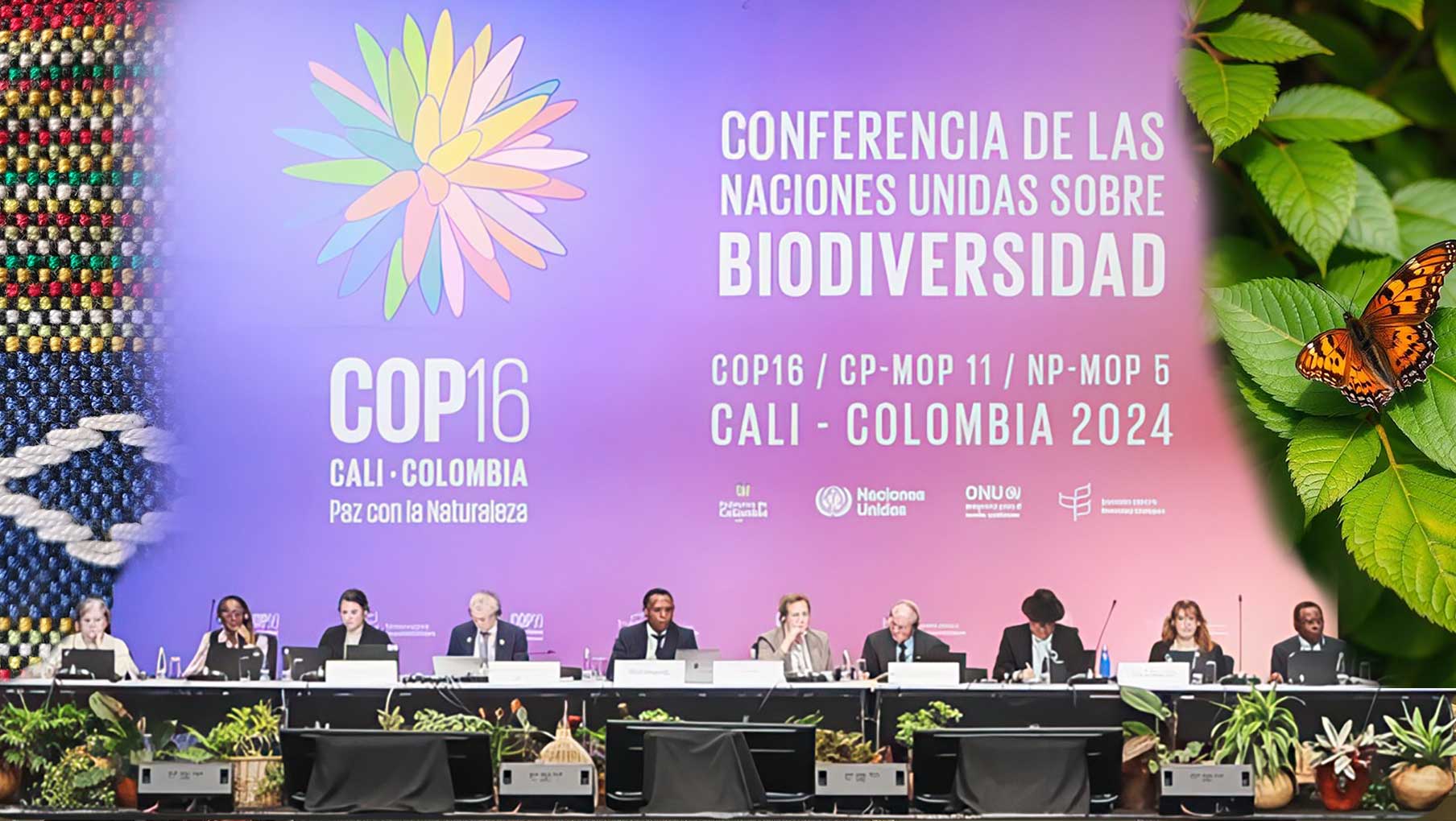A historic decision, institutionalizing the role of Indigenous peoples and local communities (IPLCs) in biodiversity conservation marked the 16th Conference of the Parties (COP16) to the Convention on Biological Diversity (CBD) in Cali, Colombia.
This milestone not only honors indigenous traditional knowledge and practices but also promotes a more inclusive approach to safeguarding the planet’s ecosystems.
For decades, IPLCs have been custodians of biodiversity, managing vast ecosystems and preserving genetic resources through their traditional practices. However, their role was often underrecognized in global biodiversity governance. Since its adoption in 1992, the CBD has included provisions for IPLC involvement under Article 8(j), which emphasizes the need to respect and preserve traditional knowledge. Despite this, IPLC participation remained limited to an ad hoc working group with no formal decision-making authority.
The decision adopted on 1 November 2024 marks a turning point, formally elevating IPLC participation through the establishment of a Subsidiary Body on Article 8(j) and Related Provisions. This move recognizes their indispensable contributions to the Convention’s implementation, its protocols, and the Kunming-Montreal Global Biodiversity Framework.
Transitioning from an ad hoc working group to a formal Subsidiary Body ensures IPLCs have a stronger, more consistent voice in biodiversity governance. This institutionalization enables them to actively shape policies and programs, ensuring that their traditional knowledge and practices are integrated into global conservation efforts. The Subsidiary Body is tasked with developing its operational methods, with an emphasis on ensuring the “full and effective” participation of IPLCs. These methods are expected to be presented for adoption at the next COP.
The decision also includes a renewed Program of Work on Article 8(j), which emphasizes the need for Parties to recognize, support, and value IPLC knowledge and practices in biodiversity conservation. This program is expected to provide a roadmap for integrating IPLC contributions into the implementation of the Convention.
The Cali Fund: A New Benefit-Sharing Mechanism
A related groundbreaking decision is the operationalization of the Cali Fund, a mechanism for equitable benefit-sharing from the use of digital sequence information (DSI) on genetic resources. Under this system, corporations profiting from the commercial use of DSI must contribute to the fund. This ensures that IPLCs, who play a critical role in conserving genetic resources, receive a fair share of the benefits.
DSI refers to the digital representation of genetic matirals such as DNA or RNA. It is a critical resourse in modern science, enabling researchers to analyze genetic data, develop medicines, improve agricultural practices, and monitor biodiversity. DSI often comes from genetic resources found in IPLC territories.
The Cali Fund’s guidelines prioritize transparency and accountability in benefit distribution, with mechanisms to ensure IPLC communities are the primary beneficiaries. This initiative is not only a financial milestone but also a recognition of the ethical obligation to compensate IPLCs for their invaluable contributions to biodiversity conservation.
These decisions align with the Kunming-Montreal Global Biodiversity Framework’s targets and set a powerful precedent for other international agreements. By institutionalizing IPLC participation, the CBD reinforces the global shift toward more inclusive and equitable biodiversity governance.
Beyond policy, the decisions have tangible implications for conservation efforts. IPLC-led initiatives, such as community-managed forests, agroecological practices, and marine conservation areas, have consistently demonstrated success in preserving ecosystems. Recognizing and scaling such efforts can accelerate global progress toward biodiversity goals.
The decisions adopted in Cali, Colombia, mark a historic moment for Indigenous peoples and local communities. By institutionalizing their participation and creating mechanisms like the Cali Fund, the CBD has laid the foundation for a more equitable and effective approach to biodiversity conservation. The positive impacts of these decisions are expected to resonate across communities worldwide, paving the way for a future where traditional knowledge and global governance work hand in hand to protect our planet.

